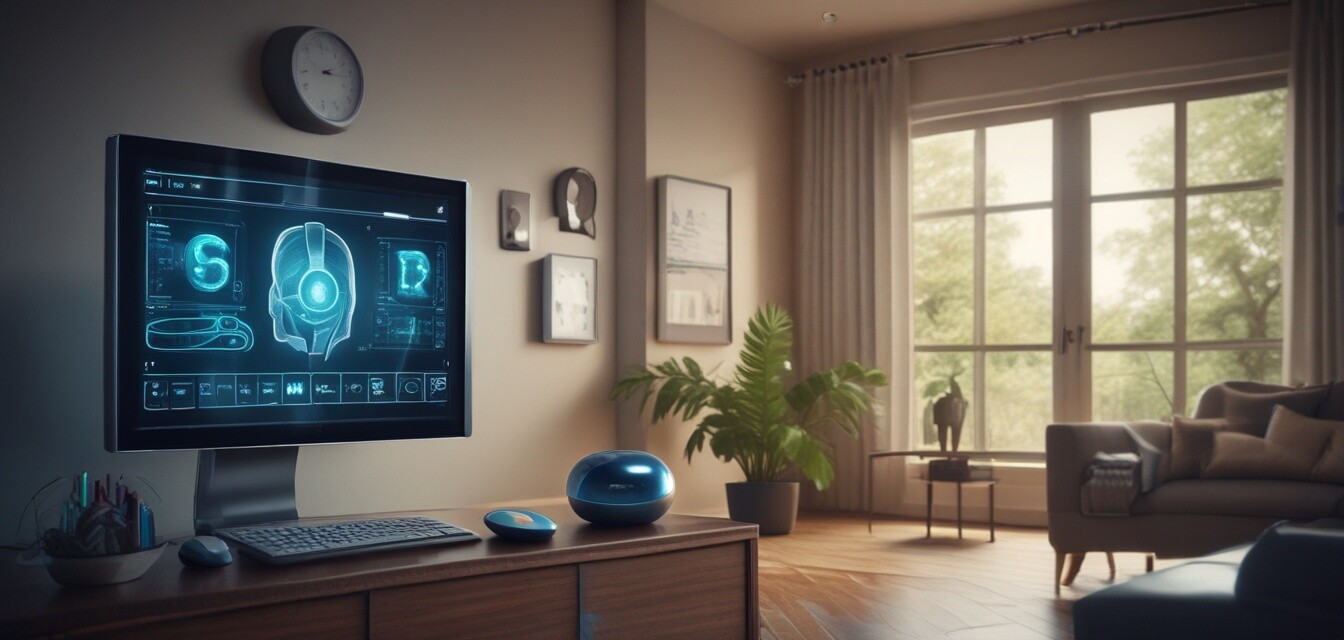
Trends in Smart Health Technology for 2025
- In 2025, smart health technology for seniors will focus on enhancing usability, safety, and connectivity.
- The integration of AI and machine learning in health monitoring devices will personalize care.
- Remote health management systems will become the norm, aiding seniors and their caregivers.
- Home security solutions will increasingly integrate with health monitoring to provide comprehensive care.
- Smart home assistants will play a vital role in managing daily tasks and health routines.
As we look toward the near future, it's clear that the realm of smart health technology is rapidly evolving. Specifically designed for seniors, these innovations aim to simplify daily living and promote independence. The trends emerging for 2025 indicate significant advancements that will ease caregiving responsibilities and enhance the quality of life for older adults. Let's dive into the noteworthy trends set to shape the landscape of smart health technology.
1. Enhanced Health Monitoring Devices
One of the most impactful trends is the enhancement of health monitoring devices. These devices are expected to become more user-friendly, with interfaces that prioritize clarity and accessibility for seniors. The advancements incorporating:
- Wearable devices that track vital signs continuously.
- Smart medication dispensers that alert users when it's time to take medication.
- Blood pressure and glucose monitors that connect to a smartphone app for real-time tracking.
2. Integration of Artificial Intelligence
Artificial Intelligence (AI) is set to revolutionize health technology by offering personalized experiences. Through machine learning algorithms, AI can:
- Analyze data trends from health monitoring devices.
- Provide actionable insights to caregivers on patient health changes.
- Facilitate predictive analytics that alerts caregivers to potential health issues.
Table: Potential Impact of AI in Health Monitoring
| AI Feature | Description | Benefit |
|---|---|---|
| Data Analysis | Evaluates historical health data. | Identifies patterns over time to improve care. |
| Alerts and Notifications | Notifies caregivers of irregularities. | Faster response to health concerns. |
| Personalized Recommendations | Suggests lifestyle changes based on data. | Improves overall health management. |
3. Remote Health Management Systems
As remote care becomes increasingly valuable, systems that allow health professionals to monitor patients from a distance will gain traction. This includes:
- Telehealth services that provide consultations without the need for travel.
- Remote patient monitoring that collects data on health status and sends it to healthcare providers.
- Health data sharing among family members and caregivers for better-coordinated care.
Related Resources
For those interested in exploring more on this trend, make sure to check out our guide on Buying Guides for health monitoring devices.
4. Enhanced Home Security Solutions
Home security solutions will not only focus on protection but will also combine features that assist health management. Integrations include:
- Smart doorbell cameras that alert caregivers when a senior leaves the house.
- Motion sensors that monitor activity levels in the home.
- Emergency alerts linked with health monitoring devices for quick responses.
5. The Role of Smart Home Assistants
Smart home assistants will play an integral role in enhancing ease of use for seniors. Their capabilities include:
- Setting reminders for medications and appointments.
- Altering smart home settings based on daily routines.
- Providing voice-activated access to health management apps.
Understanding Smart Home Technology
To gain a deeper insight into smart home technology and its implications for seniors, visit our News and Trends section.
Pros
- Increased independence for seniors.
- Better communication and coordination among caregivers.
- Proactive health management through timely alerts.
Cons
- Potential technology learning curve.
- Concerns regarding data privacy and security.
- Cost of health monitoring devices may be high.
Conclusion
The trends in smart health technology for 2025 are poised to fundamentally reshape the way seniors live and manage their health. The focus on usability, integration with AI, and enhanced accessibility will provide tangible benefits for aging individuals. It is essential for caregivers and families to stay updated on these advancements to ensure that their loved ones are equipped with the best possible solutions. By embracing these trends, we can help seniors enjoy their independence while also ensuring their safety and well-being.
Tips for Adopting Smart Health Technology
- Familiarize yourself with the technology to ensure comfort and ease of use.
- Choose devices that integrate easily with existing home technology.
- Involve seniors in the selection process to better meet their needs.
- Stay informed about new products and updates in smart health technology.